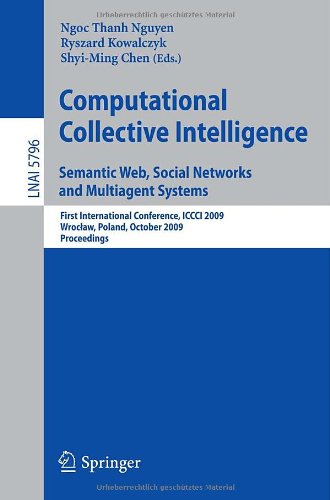

Most ebook files are in PDF format, so you can easily read them using various software such as Foxit Reader or directly on the Google Chrome browser.
Some ebook files are released by publishers in other formats such as .awz, .mobi, .epub, .fb2, etc. You may need to install specific software to read these formats on mobile/PC, such as Calibre.
Please read the tutorial at this link: https://ebookbell.com/faq
We offer FREE conversion to the popular formats you request; however, this may take some time. Therefore, right after payment, please email us, and we will try to provide the service as quickly as possible.
For some exceptional file formats or broken links (if any), please refrain from opening any disputes. Instead, email us first, and we will try to assist within a maximum of 6 hours.
EbookBell Team

4.4
32 reviewsComputational collective intelligence (CCI) is most often understood as a subfield of artificial intelligence (AI) dealing with soft computing methods that enable group decisions to be made or knowledge to be processed among autonomous units acting in distributed environments. The needs for CCI techniques and tools have grown signi- cantly recently as many information systems work in distributed environments and use distributed resources. Web-based systems, social networks and multi-agent systems very often need these tools for working out consistent knowledge states, resolving conflicts and making decisions. Therefore, CCI is of great importance for today’s and future distributed systems. Methodological, theoretical and practical aspects of computational collective int- ligence, such as group decision making, collective action coordination, and knowledge integration, are considered as the form of intelligence that emerges from the collabo- tion and competition of many individuals (artificial and/or natural). The application of multiple computational intelligence technologies such as fuzzy systems, evolutionary computation, neural systems, consensus theory, etc. , can support human and other collective intelligence and create new forms of CCI in natural and/or artificial s- tems.